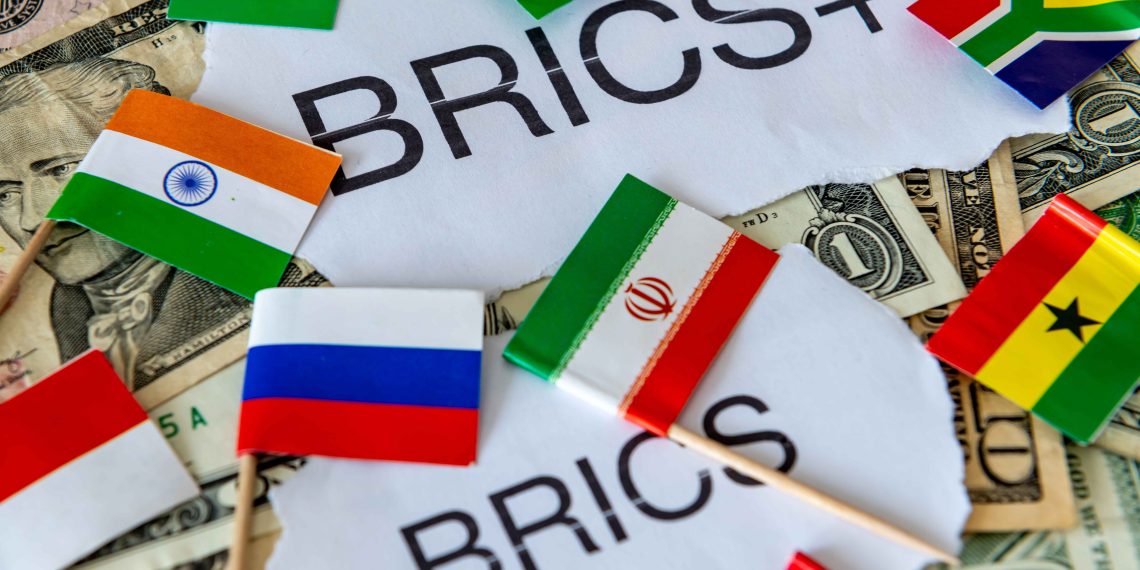The recent BRICS summit in Kazan, set against a volatile global backdrop, highlights the alliance’s ambition to challenge American influence. Amid the ongoing Ukraine conflict, Middle Eastern tensions, and upcoming American elections, the BRICS countries—Brazil, Russia, India, China, and South Africa—are positioning themselves as a viable alternative to the West.
More than an economic alliance, BRICS symbolizes a revolutionary vision for a multipolar world, breaking from Western-dominated systems. Advocated strongly by Russia and China, this model promotes an alternative to liberal democracy, reimagining global governance along different cultural and political lines. This transformation, envisioned to take 30-40 years, seeks to create a world order neither capitalist, liberal, nor Western.
Russia leads this ideological shift, underscored by Foreign Minister Sergey Lavrov’s approval of a new center for multipolarity studies. China, while more cautious, is equally committed to redefining global power structures to suit its national goals.
BRICS Push to End Dollar Dominance
The BRICS countries have ambitious plans to reduce reliance on the US dollar by developing a new shared reserve currency. Additionally, they are creating alternatives to the SWIFT payment system, with the Shanghai-based New Development Bank undergoing significant reforms to facilitate this transition. The introduction of BRICS Pay aims to simplify cross-border transactions, particularly between Russia and China, who have already begun to reduce dollar use in their bilateral trade.
Yet, moving away from dollar-based transactions is challenging. Multinational corporations, entrenched in the existing financial system, resist such shifts. Convincing corporate leaders of the benefits of a new financial architecture requires significant effort, and building the necessary infrastructure is technically complex. The long-standing Bretton Woods system, which has anchored global finance for nearly 80 years, poses another hurdle to this ambitious transition.
Africa: BRICS’ New Strategic Focus
Africa is emerging as a critical region in the BRICS agenda, with countries like Ethiopia and Egypt recently joining the bloc. This new phase of decolonization sees BRICS as a historic chance for African nations to reduce Western influence. Ethiopia, a symbol of African resistance due to its uncolonized status, is particularly significant, with its cultural heritage fostering unity among African BRICS members.
Nigeria is another central player, thanks to its vast resources and demographic strength. With a rich Yoruba heritage and strategic importance, Nigeria is well-positioned to become a major force in the BRICS-driven world order.
Turkey’s Potential BRICS Membership: A Game-Changer?
Turkey’s possible entry into BRICS would represent an unprecedented shift, as it would mark the first NATO member to seek closer ties with the bloc. President Erdogan’s Eurasian strategy reflects Turkey’s complex balancing act between its NATO obligations and its increasing cooperation with Russia, China, and India. However, Turkish elites and economic interests remain deeply tied to the EU, with many resisting a significant pivot away from the West.
Middle East Realigns Amid Regional Tensions
Escalating conflict in Gaza has shaken the Middle East’s political landscape. The Saudi-Israeli normalization process faces new obstacles, and the ambitious I2U2 corridor project, connecting India to Europe through the Middle East, is now uncertain. Given this situation, several Arab nations are gravitating toward the BRICS, seeing them as a credible alternative to Western alliances.
Saudi Arabia’s role is particularly complex. Crown Prince Mohammed bin Salman is exploring BRICS membership, balancing his vision for modernization with the kingdom’s longstanding US alliance. Saudi society itself is in a state of transition, attempting to integrate modernization goals with the weight of its traditional values.
Brazil’s Role as BRICS President in 2025
Brazil’s upcoming BRICS presidency is expected to be a transformative moment. The country enjoys strong diplomatic ties with Africa, forged through decades of cultural exchange. President Lula’s inclusive vision could encourage more Latin American countries to consider joining BRICS, enhancing South America’s connection to this alternative alliance.
Despite US efforts to maintain influence in Latin America through defense agreements and economic dominance, BRICS offers an enticing alternative for countries interested in reducing reliance on Washington.
A New World Order on the Horizon
The Kazan summit symbolizes a critical turning point in the movement for a multipolar world. BRICS now presents itself as a credible alternative to Western-led institutions like the UN, which many view as outdated. For the BRICS bloc, the goal is not simply to adjust the current system but to create a new one that promotes fairness and mutual respect among civilizations.
This vision, grounded in recognizing the equal value of all cultures, underpins BRICS’ push for global reform. A shift toward genuinely multipolar governance is central to their approach, positioning BRICS as a leader in this ideological transformation.
Philosophical Implications of the BRICS Movement
This evolving world order extends beyond geopolitics, touching on philosophy and identity. The BRICS challenge the dominance of Western universalism, promoting a vision where different civilizations assert their unique values and identities. Emerging forms of international cooperation emphasize mutual respect and cultural diversity, paving the way for a more balanced and inclusive global framework.
The Future: BRICS’ Vision for a Transformed World
The global landscape is undergoing a profound transformation as the BRICS initiative gains traction. To create a genuinely representative world order, new institutions reflecting diverse global perspectives are essential. This rebalancing of power holds the potential to usher in an era of equitable international relations, with the Kazan summit marking a decisive step toward a multipolar future. Long seen as a distant goal, a world led by diverse powers is now within reach, driven by the growing influence of BRICS and its allies.





















